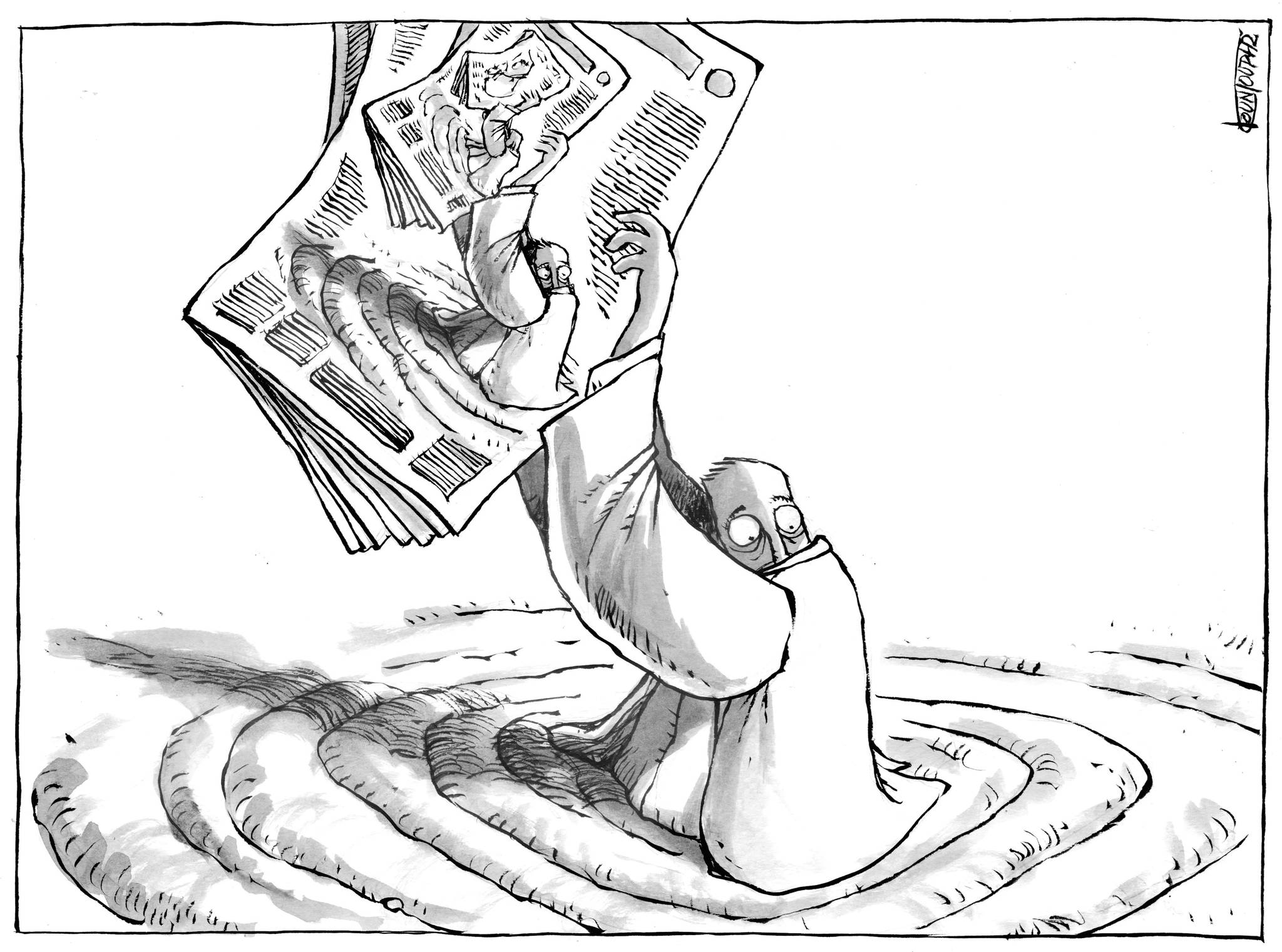Brier Dudley
The Seattle Times
A resurrected tax proposal in Congress should be a cornerstone of efforts to save America’s local, free press system.
The Local Journalism Sustainability Act is intended to stop newspapers’ bleeding long enough for them to retool and develop new business models.
More than newspapers would benefit, though. It would also lower taxes for households and small businesses.
The bill, House Resolution 3940, would provide temporary tax credits to people subscribing to local papers, to publishers and digital outlets employing journalists, and small businesses advertising with local papers and broadcasters.
This is creative and necessary. Please consider contacting your representative and urging them to pass it this year.
Newspapers can’t wait much longer for help. Every month sees more jobs lost and newsrooms shuttered. Thousands of communities, particularly in the heartland, no longer have a local news outlet.
The bill had 78 bipartisan co-sponsors after it was introduced July 2020 by U.S. Reps. Ann Kirkpatrick, an Arizona Democrat, and Dan Newhouse, a Yakima Valley Republican. But it didn’t advance past the Ways and Means committee.
Kirkpatrick and Newhouse updated the bill, reducing its cost and clarifying definitions, and reintroduced it June 16.
This short-term measure does not make the press dependent on government. Nor does it give government say over journalism or choice of which outlets benefit.
Households and local businesses, not the government, would decide which local news organizations to support.
As for payroll-tax credits, preserving jobs is a priority across industries, especially ones in crisis that provide an essential public good.
“It’s not a handout, it’s a hand up, to help them find a sustainable path forward,” Newhouse told me last week.
“It’s not permanent either — it’s temporary,” he continued. “It’s to allow them to get stronger, while they’re building a new business model and preserve what I think is something that’s very important in every community, that will help our country be stronger, if our communities are stronger.”
I particularly like subscription tax credits. That makes newspapers and the service they provide accessible to more people. It also keeps pressure on publishers to produce a good product that attracts subscribers.
Something has to happen to slow job losses while papers transition to business models built around subscriptions and digital ads.
Many are down to skeleton crews. That turns off readers and future reporters, furthering a death spiral for local papers.
Falling revenue last year forced The Daily News in Galveston, Texas, to reduce the frequency of its printed product to five days. That cut newsprint costs and helped save jobs at the family-owned company.
Publisher Leonard Woolsey told me payroll credits in H.R. 3940 would preserve and potentially restore newsroom positions.
“The first thing it will do is protect jobs,” he said. “The second thing it will do is allow people to add that one more person … if the business is stabilizing and growing.”
Ad credits would give local papers an opportunity to compete with digital giants, he said.
“It helps the smaller newspapers most proportionately, because it allows them the time and opportunity to transition,” Woolsey said.
Under H.R. 3940, subscribers to local papers would receive tax credits up to $250 yearly.
Publishers employing “local news journalists” would receive payroll tax credits up to $12,700 apiece for five years. Big chains are excluded; eligible publishers can employ a maximum of 750 people.
Businesses employing fewer than 50 people could get tax credits of $5,000 the first year and $2,500 the next four years for advertising with local papers and broadcasters.
The bill hasn’t yet received a formal cost estimate. I’ll report that when it’s done.
Washington’s delegation supported previous efforts to save the press and should unanimously support this bill.
U.S. Sen. Maria Cantwell would be an ideal sponsor for a Senate version. The Edmonds Democrat produced an outstanding report on the local journalism crisis in October 2020, outlining problems, such as digital giants reusing local news.
“Addressing these unfair business practices and local news’ adoption of a new business model will take time,” Cantwell’s report said. “If Americans are to continue receiving the benefits of local journalism — transparency, fact-checking, professional editing, and high quality and timely reporting that promotes vibrant, cohesive, and diverse communities — local news needs help to survive the current economic storm.”
Every Washington representative but U.S. Rep. Cathy McMorris Rodgers signed on last year. Newhouse said he’ll urge the Spokane Republican to join.
A key member, U.S. Rep. Suzan DelBene, will co-sponsor, her office said June 23. The Medina Democrat is a member of the Ways & Means committee where H.R. 3940 has been referred.
Districts of virtually every member of Congress are affected by the journalism crisis.
In Massachusetts, home of Ways & Means Chair Richard Neal, a dozen news outlets closed, suspended publication, cut staff or imposed furloughs last year. That’s on top of the 69 newspapers lost — 27% of the state’s total — between 2004 and 2019.
The situation is worse in New York, home of Senate Majority Leader Chuck Schumer. While it has a few notably successful dailies, the number of newspapers statewide has declined 40% since 2004.
There’s broad agreement that the journalism crisis is urgent and a threat to democracy.
Now, with the economy recovering and pandemic easing, it’s time for Congress to address this critical problem before it becomes unfixable.


